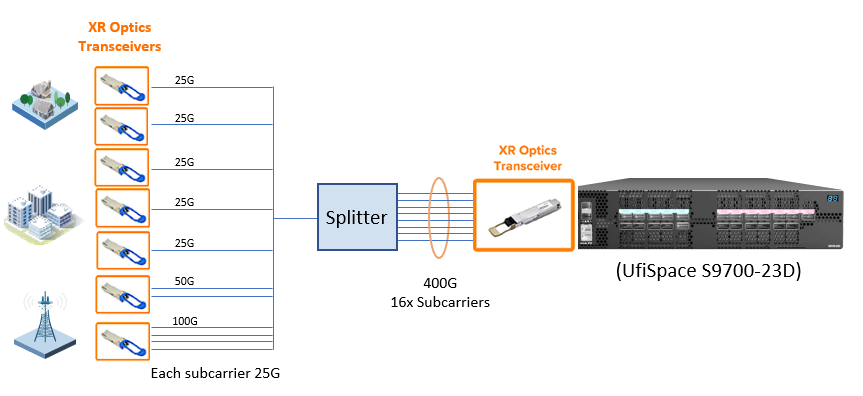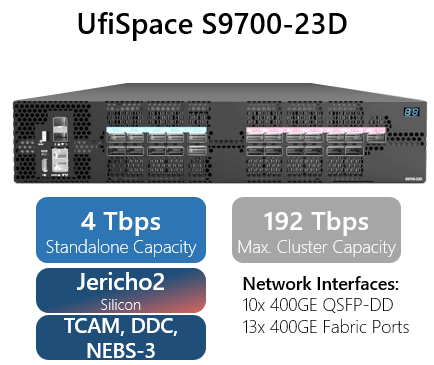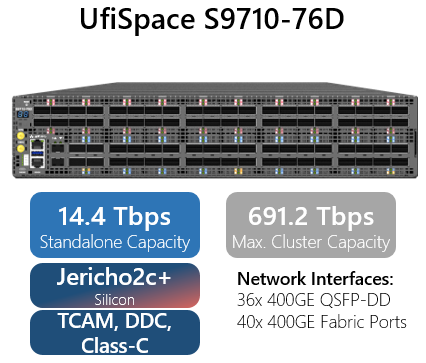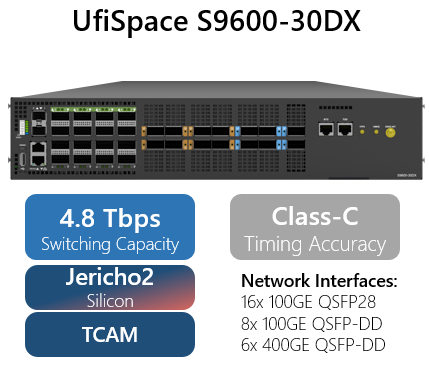Smarter Optical Network Aggregation with XR Optics
by Andrew Lui

Optical transceivers are pretty straight forward, it works in a point to point manner and communicates in pairs. A 25G transceiver on one end will require a 25G transceiver on the other end. To aggregate lower rate traffic, an aggregation node is needed to take in the traffic and forward it to a higher speed interface, in which another pair of transceivers are deployed. It is easy to see how transceivers can heavily influence the cost of building a network consisting of multiple aggregation nodes and a high volume of end points. But what if there is a way to reduce some of that cost?
OpenXR is a new standard supported by the Open XR Optics Forum MSA as the industry’s first point-to-multipoint coherent pluggable transceivers that enables a more efficient optical network. With the introduction of Digital Subcarrier Multiplexing (DSCM) technology, an optical signal can be divided into multiple lower speed signals and be distributed over different fibers. Furthermore, each fiber can carry a different number of subcarriers, which means they could have different speeds that are dynamic adjustable. This brings more flexibility for service providers to build optical networks can efficiently utilize transceiver capacity and reduce the number of transceivers needed.
UfiSpace collaborates with Open XR Optics Forum members to develop viable solutions using XR pluggable coherent optics. UfiSpace’s S9700 platforms offers low and high density 400G routers supporting XR optics to enable point-to-multipoint transmission throughout the network.
Click on the products below for more details:
Learn more about the Open XR Optics Forum or contact our sales team for more information or samples of our platforms supporting XR optics.





